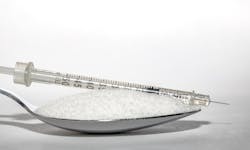At the recent 2021 Annual Scientific Sessions of the American Diabetes Association, researchers from Massachusetts General Hospital (MGH) presented positive updates on their trials of the bacillus Calmette-Guérin (BCG) vaccine to safely and significantly lower blood sugar.
In type 1 diabetes, an autoimmune disease that currently has no cure, T cells attack the pancreas and destroy its ability to create insulin, a hormone vital in allowing glucose to enter cells to produce energy. In prior work, Denise Faustman, MD, PhD, Director of the MGH Immunobiology Laboratory, and colleagues have found that BCG boosts a substance called TNF, which eliminates the harmful T cells and aids development of beneficial ones called regulatory T cells, or Tregs.
Key findings include a new understanding in how the response to BCG vaccination differs depending on a patient’s age of onset and additional support for the role of BCG vaccination to alter glucose transport and change Tregs. Currently, 143 type 1 diabetics have received at least two doses of BCG, including 25 patients enrolled in a recently launched trial of adults who had pediatric onset. Pending approval from the U.S. Food and Drug Administration (FDA), MGH aims to launch a multi-center pediatric trial later this year.
“More data from randomized double-blinded clinical trials will be reported as we move towards additional readout of the Phase II trial,” says Faustman, Principal Investigator of BCG clinical trials at MGH. “We have continued evidence of BCG’s ability to reset and restore the immune system.”
In 2018, MGH published results of the follow-up of a Phase I trial of BCG-treated long-term diabetic participants, showing lasting clinically and statistically significant drops in HbA1c values that persisted with eight years of follow-up. The new data presented at the ADA include:
· Type 1 diabetics with age of onset younger than 21 years have a faster response time and greater change in HbA1c than adult-onset type 1 diabetics.
· Over a period of three years BCG returns gene expression in Tregs in type 1 diabetics to a pattern consistent with non-type 1 control subjects.
· The HbA1c response at two years in juvenile onset subjects is consistent with the three-year response seen in the Phase 1 study.

